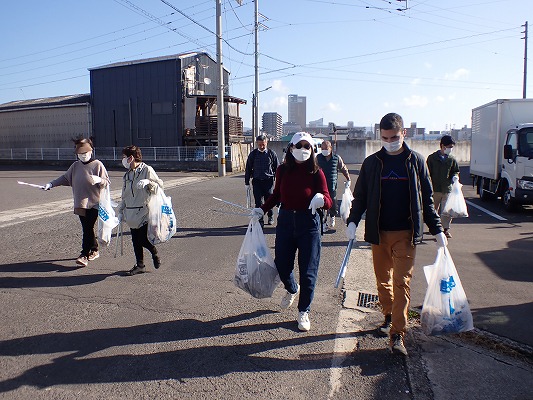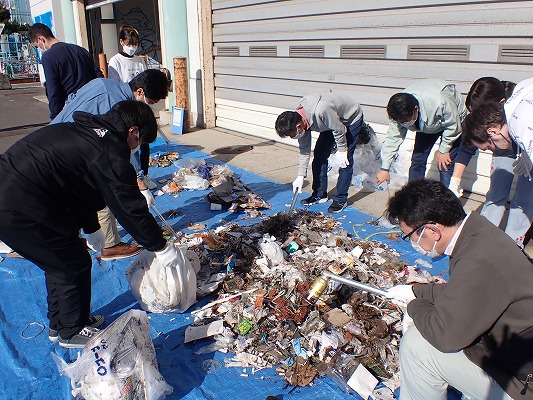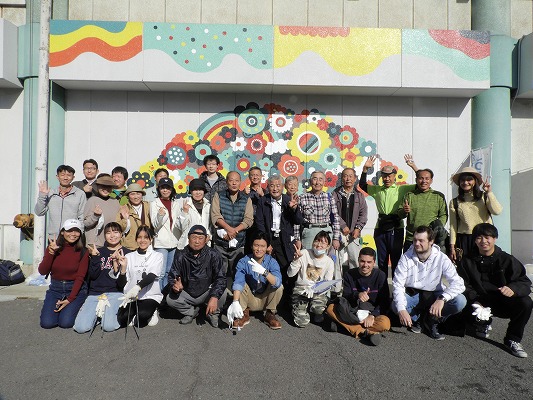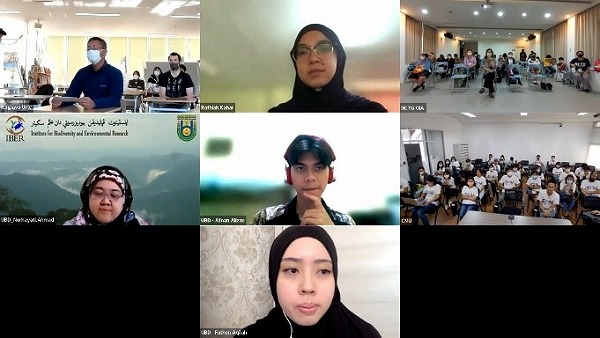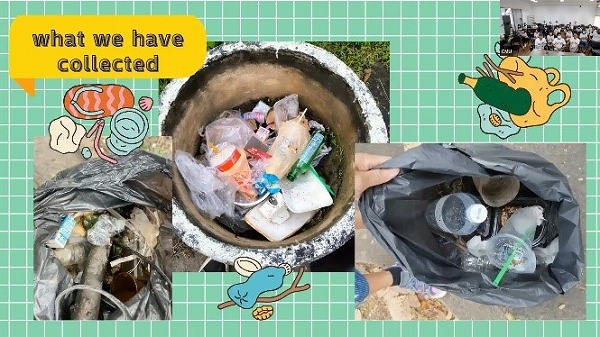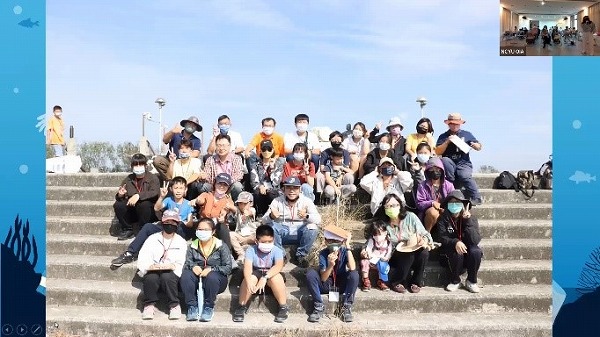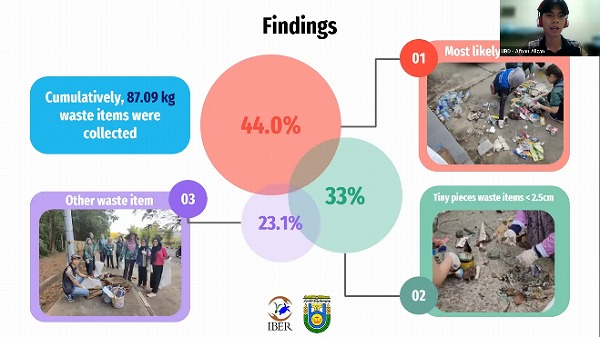11月27日(日)、香川大学は、クリーンアップイベントと海洋ゴミ調査を高松漁港北側の海岸で実施しました。本イベントは、香川大学、チェンマイ大学、国立嘉義大学が合同で計画した、合同シンポジウム「Trilateral Symposium on SDGs」の一部と位置づけられていました。今回は、チェンマイ大学、国立嘉義大学に加えて、ブルネイ・ダルサラーム大学がゲストとして招かれ、それぞれの大学は、現地で活動を実施しました。(注:香川大学にとっては、本イベントはこの合同イベントの第2部となります。本学は、クリーンアップの第1部を11月19日に高見島にて実施しており、そちらの参加者は計88名、うち学生は10名でした。)
参加者は、留学生9名・教員3名、新北町自治会・日新地区連合自治会・漁業組合から10名、中央市場関係者から5名、香川県環境森林部環境管理課里海グループから1名、合計28名でした。チェンマイ大学からは40名、国立嘉義大学からは40名、ブルネイ・ダルサラーム大学からは47名の参加がありました。
回収したゴミのうち、多かったものは①タバコの吸い殻 806個、②ロープ(長さ10~20㎝) 441個、 ③食品の包装・袋 276個、④紙類 187個、⑤飲料缶 50本、⑥飲料用ペットボトル 38本、⑦タバコ包装 35個 でした。
クリーンアップ終了後、香川大学幸町キャンパスに移動し、チェンマイ大学、国立嘉義大学、ブルネイ・ダルサラーム大学とオンラインで接続し情報交換を実施しました。全ての4大学は、順に現地でのクリーンアップについて報告を行いました。報告後の質疑応答においては、「なぜ、タバコの吸い殻がそれほど多いのか」「これ以上海洋ゴミを増やさない方法はないのか」などの質問が出ました。
2023年2月22日にも、これらの協定大学と連携して環境と海洋ゴミ問題に関するオンラインセミナー学生セッションを実施する予定です。
On 27th November, Kagawa University conducted a cleanup and garbage survey event at the north shore of Takamatsu City Fishing Port. This event was designated as part of the Trilateral Symposium on SDGs jointly organized by Kagawa University, Chiang Mai University, National Chiayi University. On this particular occasion, along with Chiang Mai University and National Chiayi University, Universiti Brunei Darussalam was invited to participate as a guest university. The three partner universities concurrently conducted the environmental cleanup and survey at their respective localities. (Note: For Kagawa University, this specific event marked the second part of the joint cleanup event. Kagawa University had earlier conducted the first part of the cleanup event on 19th November at Takamijima, with a total participation of 88 people, including 10 students.)
Participants consisted of nine students, three faculty staff members, 10 volunteers from the local resident's association and the fishermen's union, five staff members from the city wholesale market office, and a staff member from Kagawa Prefectural Office Satoumi Group, making a total of 28 participants. Meanwhile, the number of participants at Chiang Mai University, National Chiayi University, and Universiti Brunei Darussalam were 40, 40, and 47 respectively.
The top garbage types collected were, in pieces, ①cigarette butts, 806, ②Ropes (mainly 10-20 cm), 441, ③Food wrappers, 276, ④Paper fragments, 187, ⑤Beverage cans, 50, ⑥Beverage bottles (plastic), 38, ⑦Tobacco packaging/wrap, 35.
After the cleanup, participants proceeded to Saiwai campus to go online with Chiang Mai University, National Chiayi University, and Universiti Brunei Darussalam. All four universities took turns to report the cleanup at their respective sites. An interactive exchange of Q&A followed, with questions such as 'why so many cigarette butts?' and 'any ideas on how to prevent more garbage from entering the seas?'. Continuing the collaboration, the partner universities shall be conducting an online Student Seminar Session on 22nd February 2023 on environmental and marine garbage issues.
